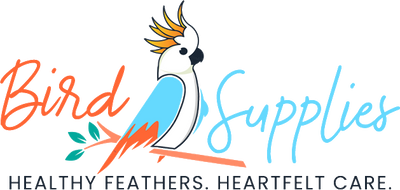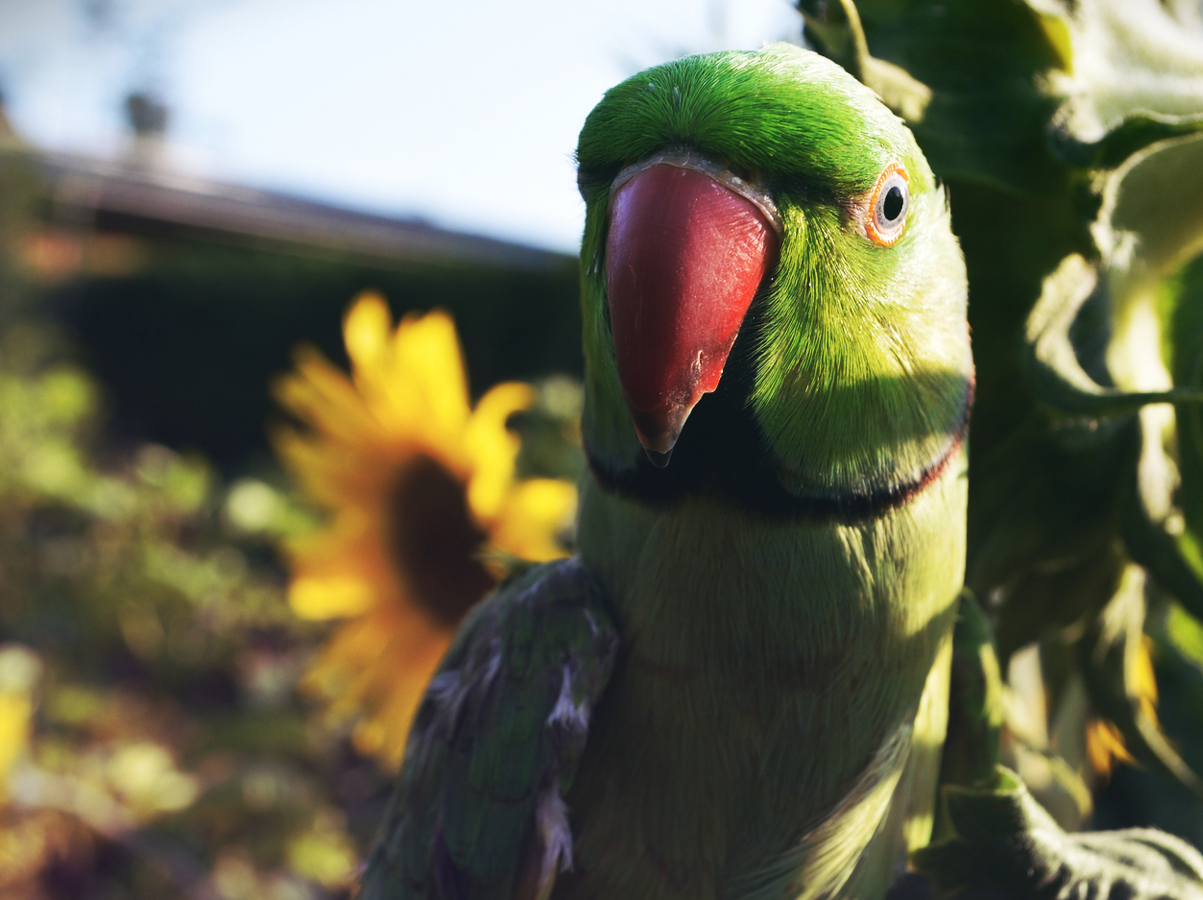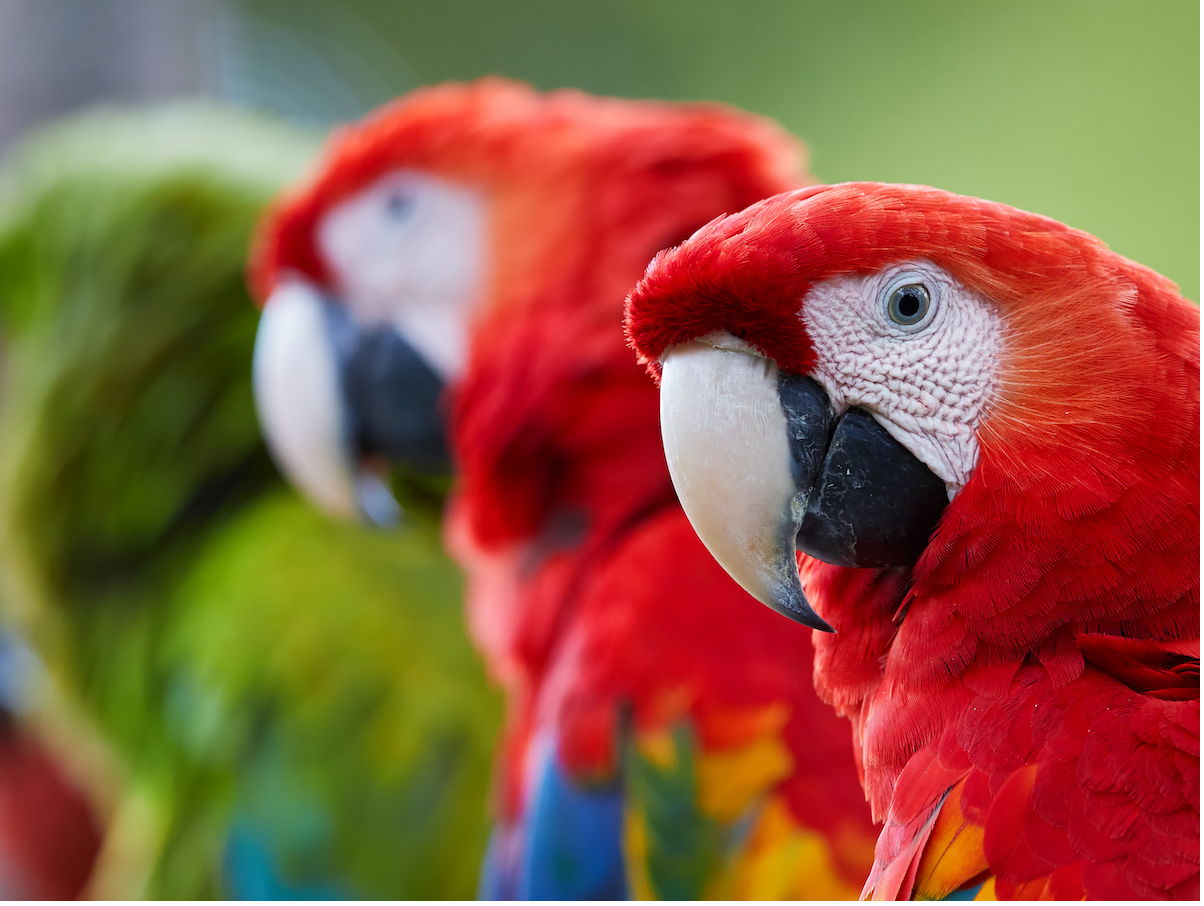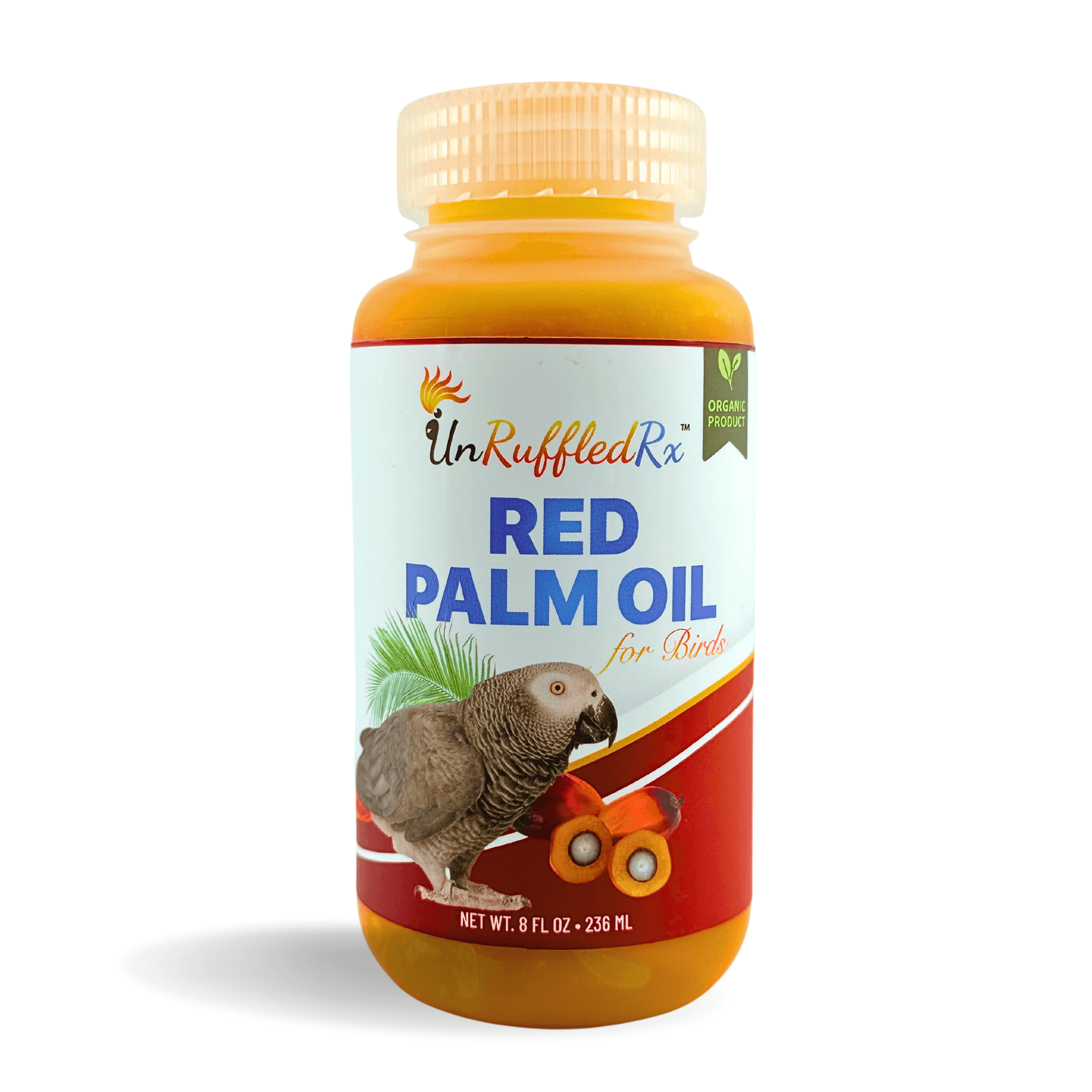- Understanding Nervous Birds
- Creating the Best Environment for Calming Birds
- Understanding Bird Behavior and Improvements
- Calming Birds for Life: Habits That Make a Difference
- When to Hire a Bird Behaviorist
- Frequently Asked Questions (FAQs)
Helping a nervous bird feel safe and secure can be a challenge, but with the right strategies, you can make a meaningful difference in their well-being. This post is designed to guide you through proven techniques for calming birds, from understanding their behavior to creating a stress-free environment. Whether you’re dealing with a new feathered friend or helping a long-time companion overcome anxiety, these tips will help you build trust, reduce stress, and foster a happier, more confident bird.
Understanding Nervous Birds
What Causes Stress in Birds?
Stress in birds is more common than many owners realize, and it can show up in subtle ways. Imagine how unsettling loud noises like vacuums, barking dogs, or thunderstorms can feel to a small, sensitive bird. If these everyday disruptions cause anxiety, think about the impact of bigger challenges like being rehomed or not having their physical, emotional, or social needs met.
Birds are highly intelligent and active, and they thrive on routines and stimulation. Without toys to shred, puzzles to solve, or time spent interacting with their flock—whether it’s you or other birds—they can quickly become frustrated or overwhelmed. Add an inconsistent diet or a lack of proper nutrition, and stress levels can soar.
Some species are naturally more sensitive than others. Cockatiels may startle easily, while African Greys can grow anxious without mental challenges to keep them engaged. By understanding what might be causing your bird’s stress, you can start making small changes to help them feel safe, loved, and secure.
Signs of Stress in Bird's
Recognizing the signs of stress in birds is the first step in helping them feel calm and secure. Birds may not show anxiety the same way other pets do, but their body language and behavior can reveal a lot. Here’s a helpful checklist to identify common signs of nervousness in birds:
-
Excessive Vocalization: If your bird is screaming or making loud, repetitive noises, it could be a sign they’re feeling anxious or seeking attention.
-
Feather Plucking: Birds under stress may start pulling out their feathers, sometimes leaving bald spots. This is often a way for them to cope with overwhelming emotions.
-
Pacing: Walking back and forth or fluttering around their cage without resting can indicate restlessness or discomfort.
- Biting or Nipping: Nervous birds may lash out, even at their favorite humans, as a way to protect themselves when they feel unsafe.
Other subtle signs include trembling, refusing to eat, or freezing in place when approached. If your bird is showing any of these behaviors, it’s likely they’re experiencing stress. By identifying the triggers and making simple adjustments, you can create a more peaceful environment and help your feathered friend feel safe and loved.
Creating the Best Environment for Calming Birds
Creating a calming environment for your bird involves more than just where their cage is placed. Their overall well-being depends on the right mix of a stress-free setting, engaging enrichment, proper nutrition, and consistent behavior support. By addressing these key areas, you can help your bird feel safe, secure, and truly at ease.
Environmental Adjustments
Creating a calm environment is essential for helping a nervous bird feel safe and secure. Start by placing your bird’s cage in a quiet, low-traffic area of your home. Make sure they have a space to "reset" when they feel overwhelmed. A corner with limited noise and visual distractions works best.
Consistency is key. Birds thrive on predictable routines, so establish regular times for feeding, interaction, and sleep. Aim for 10-12 hours of uninterrupted sleep each night, using a cage cover or a dark, quiet room to help your bird wind down.
Progressive Desensitization
Once your bird feels stable, you can introduce progressive desensitization—a slow and steady approach to exposing them to more active parts of your home. Gradually increase their interactions with family members, ensuring they don’t feel overwhelmed.
- Read to Your Bird: Sit near your bird’s cage and read aloud in a soft, soothing voice. This helps your bird grow comfortable with your presence and voice without feeling pressured to interact. Over time, your calm energy will help them relax and build trust.
- Play Gentle Music or Nature Sounds: Birds respond well to calming background sounds like soft classical music or recorded nature sounds (e.g., birdsong, rain). These can create a peaceful atmosphere and mask any household noises that might otherwise stress your bird.
- Practice Slow, Non-Intrusive Movements: Avoid sudden movements around your bird. Move slowly and calmly when near the cage. You can also gently sit in their line of sight without making eye contact, which reassures them that you’re not a threat.
- Sit Quietly Near the Cage: Simply sit calmly near your bird’s cage without attempting to interact. Read, work on a quiet activity, or just relax. Your presence helps them feel safe without added pressure to engage, building their trust over time.
|
Hot Tip: Use soothing background sounds, like soft music, nature noises, or even Parrot TV on YouTube to create a calming atmosphere for your bird. |
Understanding Bird Behavior and Improvements
With consistent efforts, most bird owners can expect to see subtle improvements in their bird’s behavior within a few weeks. Small changes, like the bird appearing less startled or more curious, are signs that they’re starting to trust their environment. However, every bird is unique, so the timeframe can vary depending on factors like the bird’s past experiences, personality, and level of nervousness.
If your bird is severely anxious, it may take several months of steady work before you notice significant progress. Patience and consistency are key. Stick to their routine, offer gentle interaction, and avoid overwhelming them with too many changes at once.
What to Do if Your Bird Backslides
Setbacks can happen, especially if a new stressor is introduced, like a loud event, a new pet, or an unintentional break in their routine. If your bird starts to backslide:
- Return to Basics: Reintroduce the calming strategies that worked before, such as creating a quiet reset space or spending more time near the cage without direct interaction.
- Evaluate Triggers: Look for potential causes of their regression, such as new noises, visitors, or other changes in the household, and address them as needed.
- Be Patient: Avoid frustration, as birds are sensitive to your emotions. A calm, positive demeanor will help them feel secure again.
- Seek Professional Help: If the backsliding is severe or prolonged, consult an avian vet or bird behaviorist. They can offer tailored advice or identify underlying health concerns contributing to the behavior.
Remember, building trust and confidence is a journey. With time, patience, and consistency, your bird will learn to feel safe and comfortable in their environment again.
Calming Birds for Life: Habits That Make a Difference
Once your bird has started to show signs of progress, maintaining that calm behavior can require more advanced strategies. Like humans with PTSD, birds may remain easily startled, so it’s essential to provide a solid foundation of security and trust. If you get stuck or notice lingering challenges, don’t hesitate to consult with a bird behaviorist for support.
Balanced Nutrition
A well-balanced diet is foundational for your bird's overall wellness. Focus on high-quality pellets, fresh fruits, vegetables, and grains to support their physical and mental health. Proper nutrition helps regulate mood and provides the energy needed for positive behaviors.

One of the most impactful ways to support your bird’s body and mind is through proper nutrition. Seed diets, while popular, are often deficient in essential vitamins, minerals, and amino acids that are critical for brain health and emotional regulation. Instead, opt for a high-quality pellet diet as the foundation of their nutrition. Pellets are designed to provide balanced nutrients that promote overall wellness and help regulate mood. Learn how to convert your bird to a pellets here:
In addition to pellets, a rich variety of plant-based foods is essential. Fresh fruits, vegetables, and grains offer vital nutrients and antioxidants that keep your bird healthy and engaged. For a great starting point, check out our Rainbow Bird Chop Recipe, which provides a colorful and nutritious mix your bird will love.
Opting for a high-quality pellet base, combined with a variety of fresh, plant-based foods, is key to enhancing their overall wellness. But did you know that certain herbs can go beyond nutrition to actively promote calmness and balance?
Adaptogen herbs are natural, plant-based remedies that help the body adapt to stress and maintain equilibrium. These herbs not only calm anxiety but also support vital systems like digestion and immunity. SereniTea, our 100% organic herbal blend, is a simple and effective way to incorporate adaptogens into your bird’s diet. With ingredients like chamomile, lemon balm, lavender, and passion flower, it’s designed to ease tension, improve relaxation, and enhance your bird’s overall vitality.
Natural nutraceuticals can play a helpful role in supporting a calmer mood in birds. Chamomile, a gentle herb known for its soothing properties, can ease tension and promote relaxation. Products like Parrot Calming Formula, which contains L-Theanine, work by supporting the natural calming pathways in the brain, helping to reduce excitability and support emotional balance. Hemp seed, a nutrient-dense food rich in essential fatty acids, also contributes to overall brain health and mood regulation, making it a valuable addition to a bird’s diet.
Calcium is another key nutrient that can influence mood and well-being in birds. Low calcium levels can contribute to irritability and anxious behavior, so maintaining adequate calcium intake is important for emotional stability. Using a bird-specific calcium supplement supports overall health while promoting a balanced, calm demeanor. Together, these nutraceuticals can enhance your bird's quality of life by addressing both physical and emotional needs in a safe, effective way.
Providing excellent nutrition doesn’t have to be complicated. With a foundation of quality pellets, fresh produce, and a touch of herbal care like SereniTea, you can give your bird the physical nourishment and emotional support they need to thrive. Supporting your bird’s body and mind has never been easier—or more rewarding.
Consistent Positive Reinforcement
Regular training using positive reinforcement builds trust and encourages desired behaviors. Keep sessions short, rewarding your bird with treats, verbal praise, or affection when they display calm and confident actions. This ongoing practice strengthens your bond and reinforces good habits.
Clicker training is an excellent tool for positive reinforcement. Instead of focusing on what not to do, you teach your bird what to do, making training a constructive and trust-building experience. For example, you can use a clicker to signal when your bird performs a desired behavior, immediately following it with a reward. This clear communication helps your bird understand what’s expected while building confidence and reducing stress.
By teaching your bird through positive reinforcement, you create an environment of cooperation and mutual respect. This approach not only strengthens the bond between you and your bird but also sets the foundation for a trusting and secure relationship. The result is a happier, more confident bird that feels safe exploring and learning in its environment.
Identifying and Avoiding Triggers
Continue monitoring for potential stress triggers, such as loud noises, new pets, or changes in routine. By minimizing or eliminating these stressors, you provide a stable environment that supports your bird's calm demeanor.
Identifying triggers requires careful observation of your bird’s behavior. Notice when they appear startled, agitated, or overly quiet, and look for patterns that might reveal what’s causing their discomfort. Triggers can range from sudden movements and unfamiliar objects to changes in lighting or loud, unexpected sounds. Once identified, these stressors can often be managed or eliminated, helping your bird feel more secure.
In some cases, you can work on desensitizing your bird to certain unavoidable triggers through gradual exposure. For instance, if they’re frightened by the vacuum cleaner, you can start by running it in a distant room and slowly bring it closer over time while rewarding calm behavior. This step-by-step approach reduces fear while building confidence, ensuring your bird learns to adapt to its environment without feeling overwhelmed.
Ongoing Enrichment
Maintain mental stimulation by rotating toys, introducing foraging activities, and offering problem-solving challenges. These enrichments channel your bird’s energy into productive and enjoyable activities, reducing the likelihood of stress or boredom.
Focusing on natural parrot behaviors is essential for your bird’s mental and emotional well-being. Reinforcing behaviors like shredding, chewing, foraging, and vocalizing appropriately allows your bird to express instincts that are deeply ingrained. For example, providing shreddable toys or safe branches for chewing satisfies their natural urge to manipulate objects, while foraging toys encourage them to explore and "hunt" for treats.
Encourage independent play by creating activities that your bird can enjoy on their own, such as puzzle feeders or treat-filled toys. This not only keeps them engaged but also reduces their reliance on you for entertainment, helping prevent a one-person bond. Activities like hanging climbing ropes or introducing interactive toys also allow your bird to explore their space confidently.
By promoting these natural behaviors, you help your bird feel more like a bird while fostering independence and emotional balance. A well-enriched bird is more likely to be happy, relaxed, and adaptable to life’s changes, strengthening their overall well-being and trust in their environment.
When to Hire a Bird Behaviorist
If your bird’s behavior isn’t improving despite your best efforts, it may be time to consult a bird behaviorist. This is especially important if your bird is engaging in self-harming behaviors like feather plucking or excessive screaming, as these can indicate deep emotional distress. A professional behaviorist can identify triggers, evaluate your bird’s environment, and create a tailored plan to address their unique needs. Seeking expert help early can prevent these behaviors from becoming ingrained habits, making it easier to support your bird's recovery.
Another sign you may need a bird behaviorist is if your bird’s behavior starts to interfere with your daily life or their safety. Aggression, such as biting or lunging, can create challenges for bonding and handling. A behaviorist can help you understand the root causes and implement strategies, like positive reinforcement and environmental adjustments, to rebuild trust and harmony. Whether it’s a sudden change in demeanor or a long-standing issue, professional guidance ensures you and your bird have the tools to succeed.

When hiring a bird behaviorist, look for someone with experience in avian wellness and a compassionate, science-based approach. A good behaviorist should be able to explain their methods clearly, customize strategies for your bird’s species and personality, and provide actionable steps you can implement at home. My passion is helping birds and their owners create a thriving, stress-free relationship. If you’re feeling stuck or overwhelmed, I’d love to help you and your feathered friend find the calm and connection you both deserve.
Frequently Asked Questions (FAQs)
1. Why is my bird so nervous all the time?
A nervous bird may feel unsafe due to changes in their environment, loud noises, or a lack of routine. Providing a stable, predictable environment with quiet spaces and consistent interaction can help reduce stress in birds.
2. How can I calm my anxious bird?
Start by creating a quiet, low-traffic area for your bird’s cage and establish a daily routine. Positive reinforcement training, soothing background music, and calming birds with natural herbal teas like chamomile can make a big difference.
3. What are common signs of stress in birds?
Signs of stress include feather plucking, excessive screaming, pacing, biting, and a lack of appetite. Subtle signs like trembling or freezing in place can also indicate an anxious bird.
4. Can diet affect bird behavior?
Absolutely! A seed-based diet can leave your bird lacking essential nutrients, which can contribute to stress and anxiety. A quality pellet diet combined with fresh fruits, vegetables, and calming herbs supports balanced bird behavior.
5. What are the best toys for calming birds?
Foraging toys, shreddable materials, and puzzle feeders help distract nervous birds and provide mental stimulation. Rotating toys regularly keeps their environment engaging and reduces stress in birds.
6. Can a nervous bird learn to trust again?
Yes, with patience and consistent positive reinforcement, even a nervous bird can rebuild trust. Focus on gradual exposure to new experiences and reward calm, confident behavior to encourage progress.
7. How much sleep does my bird need to reduce anxiety?
Birds need 10-12 hours of uninterrupted sleep every night. Use a cage cover or place their cage in a dark, quiet room to help them relax and reduce stress.
8. Are there natural ways to calm an anxious bird?
Yes! Natural options like herbal teas with chamomile or lemon balm and soothing activities, like reading to your bird, can gently calm an anxious bird.
9. When should I consult a bird behaviorist?
If your bird’s stress-related behaviors, like feather plucking or aggression, aren’t improving or are getting worse, it’s time to seek expert help. A bird behaviorist can create a personalized plan to address your bird’s needs.
10. Can loud noises permanently harm a nervous bird?
Loud, sudden noises can create ongoing stress in birds, especially if they happen often. Minimizing exposure to these triggers or desensitizing your bird gradually can help them feel more secure.
11. Why does my bird scream when I leave the room?
This behavior often stems from separation anxiety or boredom. Provide independent play opportunities, rotate toys, and ensure your bird has plenty of mental stimulation to help them feel more confident alone.
12. Can herbal remedies really help with bird anxiety?
Yes, herbal remedies like those found in SereniTea combine chamomile, lemon balm, and other calming herbs to naturally ease stress in birds. They’re a simple, effective way to support your bird’s emotional well-being.
In conclusion...
Caring for a nervous bird requires patience, understanding, and the right strategies to create a sense of safety and trust. In this guide, we explored how to identify and reduce stressors, support your bird through proper nutrition and enrichment, and when to seek expert help. By focusing on calming birds through consistent routines, natural remedies, and positive reinforcement, you can help your feathered companion feel secure and confident. With time and effort, you’ll build a stronger bond and provide the happy, fulfilling life your bird deserves.
Related Posts:
How a Bird Behaviorist Can Help You Use Positive Reinforcement Correctly
6 Tips For Using Calming Bird Medicine
Understanding Parrot Stress and What To Do About It
References:
Matson, K., & Koutsos, E. (2006). Captive parrot nutrition: Interactions with anatomy, physiology, and behavior. In A. Luescher (Ed.), Manual of Parrot Behavior (pp. 49–58). Blackwell Publishing.
LoveToKnow Pets. (n.d.). Why your pet bird is stressed. Retrieved January 19, 2025, from https://www.lovetoknowpets.com/birds/why-your-pet-bird-is-stressed
Pet Remedy. (n.d.). Managing stress for pet birds naturally. Retrieved January 19, 2025, from https://petremedy.co.uk/managing-stress-for-pet-birds-naturally/
Wilson, L., & Luescher, A. U. (2006). Parrots and fear. In A. Luescher (Ed.), Manual of Parrot Behavior (pp. 225–232). Blackwell Publishing.
Diane Burroughs, LCSW is a licensed psychotherapist trained in ABA therapy techniques. She specializes in avian anxiety disorders and is certified in Nutrition For Mental Health. Diane has written a number of bird behavior books and she offers behavior consultations. She's developed a range of UnRuffledRx Science-backed Parrot Wellness Supplies.
Diane's products have been featured in the Journal of Avian Medicine and Surgery and at Exoticscon, a conference for exotic pet veterinarians. Her bird collars & supplements are stocked in avian vet clinics and bird stores throughout the US. With over 30 years in the field of behavior, Diane has created thousands of successful individualized behavior plans that help pets thrive.
TAGS: #BirdStress #Anxious Bird #BirdCalmingSupplements #UnRuffledRx
SHARING IS CARING! PLEASE SHARE ON YOUR FAVORITE SOCIAL MEDIA NOW!











